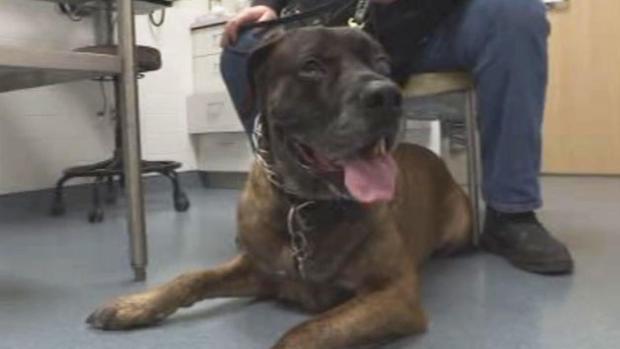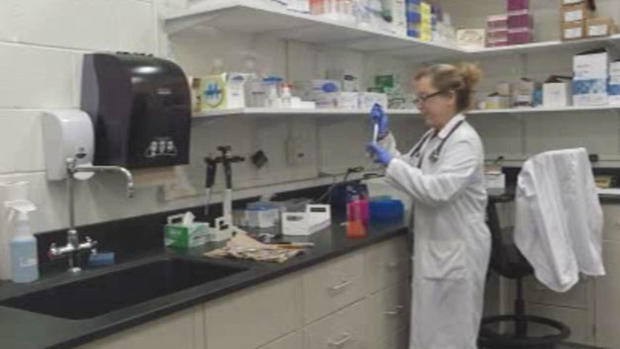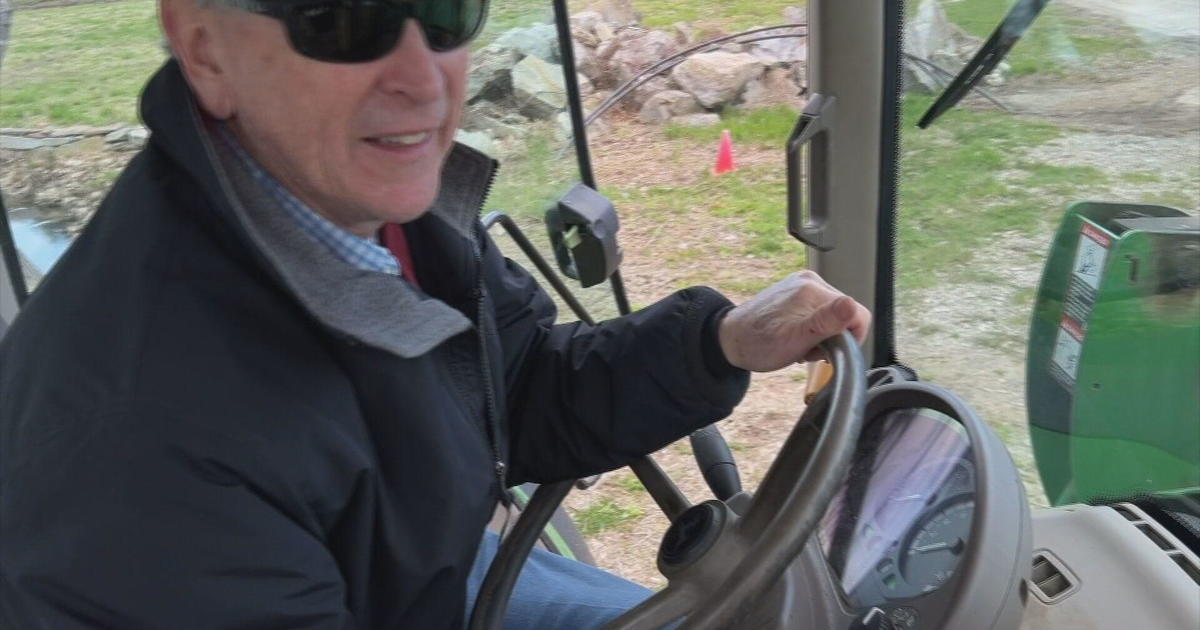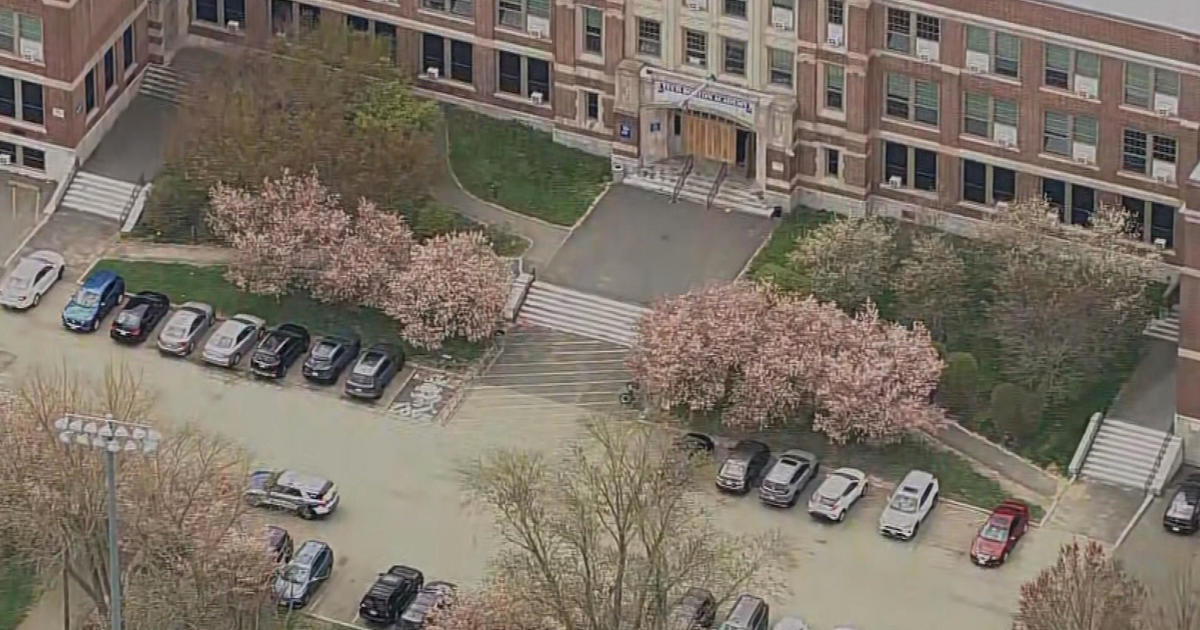Promising Experimental Drug Treating Dogs With Cancer
NORTH GRAFTON (CBS) - When it comes to cancer research, dogs just might be the key to unlock vital clues needed to find a cure.
Veterinarians in central Massachusetts are excited about some recent results and it's also making for some extremely thankful pet owners.
"They gave me my best friend back and they gave him more time, quality time," said Edward Sloan, whose dog, Dozer, a 7-year-old bull mastiff, became sick last fall.
"All of sudden he went blind, overnight," Sloan said. "He was scared. He was sad."
Dozer had cancer.
That's when Sloan found a clinical trial happening at the Cummings School of Veterinary Medicine at Tufts University.
"He had lost a lot of weight. He had several weeks of history before he even saw us," explained Dozer's vet, Dr. Abbey Sadowski.
Sadowski and Dr. Cheryl London are testing an experimental drug combined with just one round of chemotherapy to treat lymphoma.
"We had this remarkable response... when you combine these two things together you can get a dramatic reduction in disease," London said.
It's a small study but the results have been promising especially for Dozer.
"A single heroic dose... the next day he was able to see," Sloan said.
Dozer is now 3 months in remission. And his medical turnaround could eventually lead to a breakthrough for humans, too.
"It ultimately will help guide how it's used in humans," said London, when talking about the future testing of this drug.
It's so new it doesn't even have a name yet. It's only referred to as KPT-9274.
London said success, or failure, in a canine trial is a valuable piece of the research puzzle.
"The benefits to the human side are that you get a drug into humans that's actually much more likely to work. The benefit to the veterinary side is that we get to enroll our patients in clinical trials of novel drugs at little to no cost for them," London said.
For Sloan, the reward is still being able to play frisbee with Dozer.
"The fact that's he's alive, the fact that he's doing well and he's bristling with energy and personality, I would consider miraculous," he said.
Doctors are still accepting dogs into this trial. For questions regarding the clinical trial, please email the clinical trials technician, Diane Welsh, at clinicaltrials@tufts.edu.
And it's not just lymphoma research happening at the Cummings School.
They are also looking into potential treatments for ALS, bone cancer, and heart problems, which are diseases that affect both humans and dogs.





